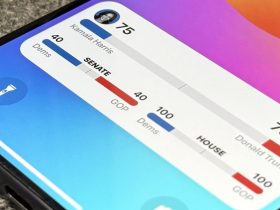Malicious apps have become an increasingly significant threat, with even trusted platforms like the Google Play Store being unable to fully safeguard users. While third-party app stores and unverified sources are traditionally associated with malware risks, recent reports reveal that over a dozen apps containing SpyLoan malware were available on Google Play.
These apps have been downloaded by 8 million Android users, exposing them to serious dangers such as harassment, financial exploitation, and personal data breaches. This discovery highlights the limitations of existing app marketplace protections and underscores the need for greater vigilance from both providers and users.
SpyLoan malware typically operates under the guise of loan apps offering quick and hassle-free financial solutions. These apps attract users with promises of instant cash, low interest rates, and minimal requirements. However, behind this façade lies a sophisticated scam designed to gather personal and financial data.
Once collected, this information is used to intimidate victims into paying outrageous interest rates. Many of these apps employ psychological manipulation tactics, such as countdown timers or limited-time offers, creating a false sense of urgency. This pressures users into acting hastily without fully understanding the consequences, trapping them in a cycle of debt and compromised privacy.
McAfee’s mobile research team discovered 15 apps on Google Play that were embedded with SpyLoan malware. These apps often bore names and logos that mimicked legitimate financial institutions, making them appear credible and trustworthy at first glance. Their primary objective was to extract sensitive user data, including phone numbers, contact lists, and device information, which was then sent to remote command-and-control servers for malicious use.

Despite Google removing these apps from the Play Store after receiving McAfee’s report, the event reveals vulnerabilities in Google’s malware detection system, Play Protect. While Play Protect offers some level of protection, its track record shows it is not foolproof and cannot guarantee complete security against emerging threats.
The invasive nature of these apps becomes evident in their permission requests. Upon installation, they demand access to a wide range of sensitive features, such as contact lists, call logs, camera functions, and location data. These permissions are justified as necessary for identity verification or fraud prevention, but they serve a far more sinister purpose.
Victims are often subjected to threats and extortion, with some app operators even harassing family members or using stolen personal photos as leverage. This level of intrusion demonstrates how malicious apps exploit trust to access and misuse personal information.
To mitigate the risks posed by SpyLoan and similar malware, users must adopt proactive security measures. The first step is to install robust antivirus software that provides an additional layer of defense beyond Google Play Protect. Such software can detect and neutralize malware before it causes harm, as well as warn users about suspicious links or phishing attempts.
Another important precaution is to download apps only from reliable sources like the Google Play Store, although users should still remain cautious. Even within trusted platforms, thoroughly reviewing app permissions before installation is essential. Apps requesting access to features unrelated to their core functionality should be approached with skepticism, and permissions should only be granted if absolutely necessary.
Beyond technical safeguards, users should exercise caution when seeking financial assistance online. Loan offers that appear too good to be true often are. It is always safer to approach reputable financial institutions for loans, as they adhere to transparent terms, fair interest rates, and ethical practices.
Legitimate lenders do not rely on scare tactics, excessive permissions, or hidden fees to conduct business. For users unsure about a lender’s authenticity, checking reviews, verifying credentials, and consulting a financial advisor are prudent steps to take before committing to any agreements.
The discovery of SpyLoan malware on the Google Play Store underscores the importance of maintaining vigilance in the digital age. While platforms like Google Play and security measures like Play Protect provide a degree of safety, they are not infallible.
Users must take responsibility for their own digital security by employing antivirus software, reviewing app permissions, and avoiding untrustworthy sources. Additionally, relying on established financial institutions for loans can help prevent falling victim to predatory schemes. By staying informed and cautious, users can significantly reduce their exposure to malicious apps and their harmful consequences.







Leave a Reply